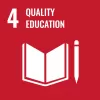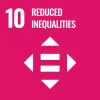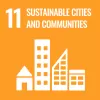The project was born from the Social Days event and to propose something exciting, educational and inclusive we contacted Luigi Carollo and Lorenzo Barbato, two representatives of an increasingly lively and less marginalized community in the world and in our Palermo community, the LGBTQ + community. In order to achieve the goal of expanding to an ever larger number of people the knowledge of a world that is often not very close, we asked them questions that I am convinced have answered some questions.
At 6 in the afternoon, our partner Bianca conducted an interview with Luigi Carollo and Lorenzo Barbaro on instagram, dividing the time equally between the two. The questions were varied and I report them briefly here:
1. Culture changes and languages must also change, do you feel that this change is taking place, for example with the use of the asterisk, or are we still very far away?
2. Is the University of Palermo an inclusive place? What is the alias career?
3. What do you think of the Zan law. Propaganda and discrimination are two terms that I believe are unclear and cause great difficulty in interpretation. How much is it talked about within the LGBTQ community? Issue of the Zan bill on homotransphobia. The final text proposes to integrate art. 604 bis and Ted of the Criminal Code to include discrimination based on gender, sexual orientation or gender identity. Those who instigate or commit acts of discrimination for ethnic, racial, national or religious reasons, and based on sexual orientation or gender identity, as well as the propaganda of ideas on racist reasoning, are punished with imprisonment from 6 months to 1 year. The text of the law is unclear and not very transparent. It is problematic because in the field of criminal law it is necessary to draw up rules of indisputable, clear concepts, so that there is no excessive burden on the judge for interpretation. There is another problematic aspect for the terms used: sexual orientation and gender identity in particular, because they are concepts that are still being studied and to be given an unambiguous, concluded definition. What do you think about it? From a legal point of view? Does this law help, did it help? That's it: are these terms I use still little identifiers?
4. Have there been any cases in which there have been obstacles to the organization of Pride?
5. If so, is there an episode you would like to share? And what solutions did you find to tackle the problem?
6. In this very long period of forced semi-confinement at home, have you heard of problems relating to discrimination, to the non-acceptance of one's personal condition? From diminishing one's person by using incorrect pronouns to the complete divarication of one's will ... ... Especially for trans people, hearing at home using pronouns aimed at oneself, not being able to express one's identity, gives a sense of discomfort, suffocation … How do you let off steam in these cases?
7. How do you think the work situation can be improved for all those who are experiencing a period in transition? Is there actually a gap between binary people and trans people, or still in transition in finding, questioning themselves, even having the opportunity to carry out a job interview?



